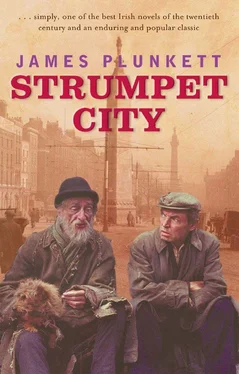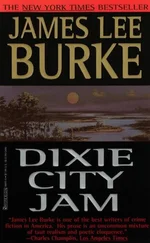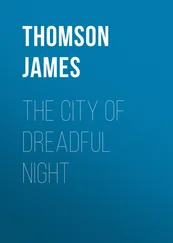Father Boehm spoke interestingly of St. Patrick and early Irish monasticism, referring frequently and often confusingly to the Annals of Innisfallen , the Annals of Clonmacnoise , the Chronicum Scottorum, the Book of Leinster, the Annals of Tigernach , the Annals of the Four Masters. He mentioned Plummer’s Vitae Sanctorum Hibernia and paused to offer some penetrating comments which, however, were difficult to follow. In a lighter mood he praised Kuno Meyer’s recently published Ancient Irish Poetry and, offering them a quotation, pursed his lips and wrinkled his massive forehead as he explored his labyrinthine memory. An abrupt and triumphant exhalation of breath signalled that he had cornered one. In a deep voice which had a slight accent he began a poem of the ninth century called ‘The Hermit’s Song’.
‘I wish, O Son of the Living God
O Ancient eternal King
For a little hut in the wilderness
That it may be my dwelling
Quite near, a beautiful wood
Around it on every side
To nurse manyvoiced birds
Hiding it with its shelter’
The mention of birds and woods caused Father O’Sullivan to glance automatically at the shamrock in the bowl. It was withering fast from the heat of the fire. He quickly returned his attention to the poem, a little puzzled because it did not seem to rhyme.
‘A pleasant Church and, with the linen altar cloth
A dwelling for God from Heaven
Then, shining candles
Above the pure white Scriptures
Raiment and food enough for me
From the King of fair fame
And I to be sitting for a while
Praising God in every place.’
Father Boehm beamed at them. Father O’Connor praised its simplicity and grace.
‘What a pity we cannot all follow the poet,’ he remarked, regretting the need to be involved with the world.
Father Boehm said his sermon would treat of the three great saints of Gaelic Ireland: Patrick, Brigid and Colmcille. Brigid was peculiarly appropriate, he suggested, since she was the patron saint of their parish. Did they know there was a legend that she had once hung her cloak on a sunbeam? That was amusing, of course. But beautiful too. Had it not charm? Father O’Connor agreed to play for benediction on the harmonium. He hoped it was serviceable. It was so long since it had been used. Father Boehm wanted the final hymn to be ‘Hail, Glorious St. Patrick’.
‘With a thunder,’ he enthused, ‘Grandioso. An Anthem of triumph.’
Father O’Connor, thinking of the harmonium, promised to do his best.
It was at that moment the clerk knocked on the door and opened it with a look of anxiety and apology. Father O’Connor was displeased. But the clerk remained fidgeting and looking uneasy so he excused himself and went out to see what was amiss. When he returned Father O’Sullivan asked:
‘Is something wrong?’
‘A child has brought a message and it is somewhat garbled. Someone has been killed—or has been found dead, I cannot be sure which—in Chandlers Court.’
‘Do you know who it is?’
‘No. The message is very unsatisfactory.’
‘One of us had better go,’ Father O’Sullivan decided.
He rose automatically. But Father O’Connor knew his place. He was the junior. There was an important guest to be looked after.
‘No, no, Father—please,’ he said, ‘the duty is mine.’
‘Dear me,’ Father Boehm said.
‘I’ll go immediately,’ Father O’Connor decided.
‘Take a cab,’ Father O’Sullivan advised.
‘Yes. I’ll do that. It will mean I can get back in time for benediction.’
He made his apologies to Father Boehm who waved them away. He quite understood. He consented to a little more wine but studied the exact amount scrupulously and then motioned its sufficiency to Father O’Sullivan.
‘Wine is a blessing in moderation, an imperfection in excess,’ he explained. His genial smile pleased Father O’Sullivan, the attentive host. He listened with meticulous interest while Father Boehm discussed the early Irish Penitentials, referring initially to Zettinger on Cummean, but later and in more detail to Finnian of Clonard.
News of something wrong spread through Chandlers Court like a fire. A body found; a woman drunk, a suicide. By the time Father O’Connor arrived the details were known. People were spread on the pavement outside. They lined the hallway. They leaned over the basement banisters. Down below it was dark, but neighbours had provided candles which gave a wavering light. A man found dead. This was better than the parades and the make-believe. This was the drama of death. They had passed time and again along the street above the cardboarded window. Little knowing. A woman told another that only that morning she had remarked it to her husband. She had wondered, she said. There were women with shawls, subdued children, men with grave faces.
‘This way, Father,’ Hennessy said. He assumed a natural precedence, having been the discoverer. The people made passage.
‘What exactly has happened?’ Father O’Connor asked.
‘I called down to see him about an hour ago. He was dead.’
‘Called down to see whom?’ Father O’Connor asked shortly.
‘Rashers Tierney,’ Hennessy said.
Father O’Connor stopped.
‘It’s not a pleasant sight, Father,’ Hennessy said, ‘he’s been dead for some days.’
Father O’Connor had remembered a figure in candlelight lying on a coke heap. He could smell urine and the reek of spirits. The memory was arrestingly vivid.
‘Show me the way,’ he said, after a moment.
As he passed all their eyes were fixed on him, depending on him. For what he did not know. It was as though they expected him to do something about Death. He shook off the lingering influence of the white cloth, the wine, the learned talk that had so transformed the common room of St. Brigid’s. These were his parishioners. This was the true reality of his world. He was here of his own free choice. He had demanded to be allowed to serve them.
Led by Hennessy he passed between the candles they had set along the stairway and into the dimly lit room. The smell of corruption was overpowering. In the corner furthest from him sacking covered the body. They had decided for decency’s sake to hide it from him. He searched the faces of the few men in the room and recognised Fitz. He looked at the bulging sacking.
Is that he?’
Fitz nodded.
‘He’s been dead for some time?’
‘Several days, Father, by the look of it.’
‘Then there’s little I can do,’ Father O’Connor said. He meant it was too late for the administration of the last rites but they would know that already. Presumably. They nevertheless continued to regard him. Expecting what? The smell was sweet, sickly, unbearable. He could not minister to carrion.
‘Have you notified the police?’
‘We have,’ Fitz said.
There would be an inquest. They would take it to the morgue and bury it God knows how or where. The sooner the better. In the interest of health, if nothing else.
These were the ones who refused to trust him because they thought he had tried to break their strikes when all he intended was to give a little charity to the old and the destitute. They expected him as a priest to lead a prayer for the dead boilerman. That was their right. But he would do more than that. He motioned to Hennessy.
‘Remove the sacking.’
They had not expected it. He saw them looking uneasily at Fitz, waiting for him to answer for them.
‘He’s in a very bad way, Father,’ Fitz said, ‘the rats . . .’
Читать дальше












